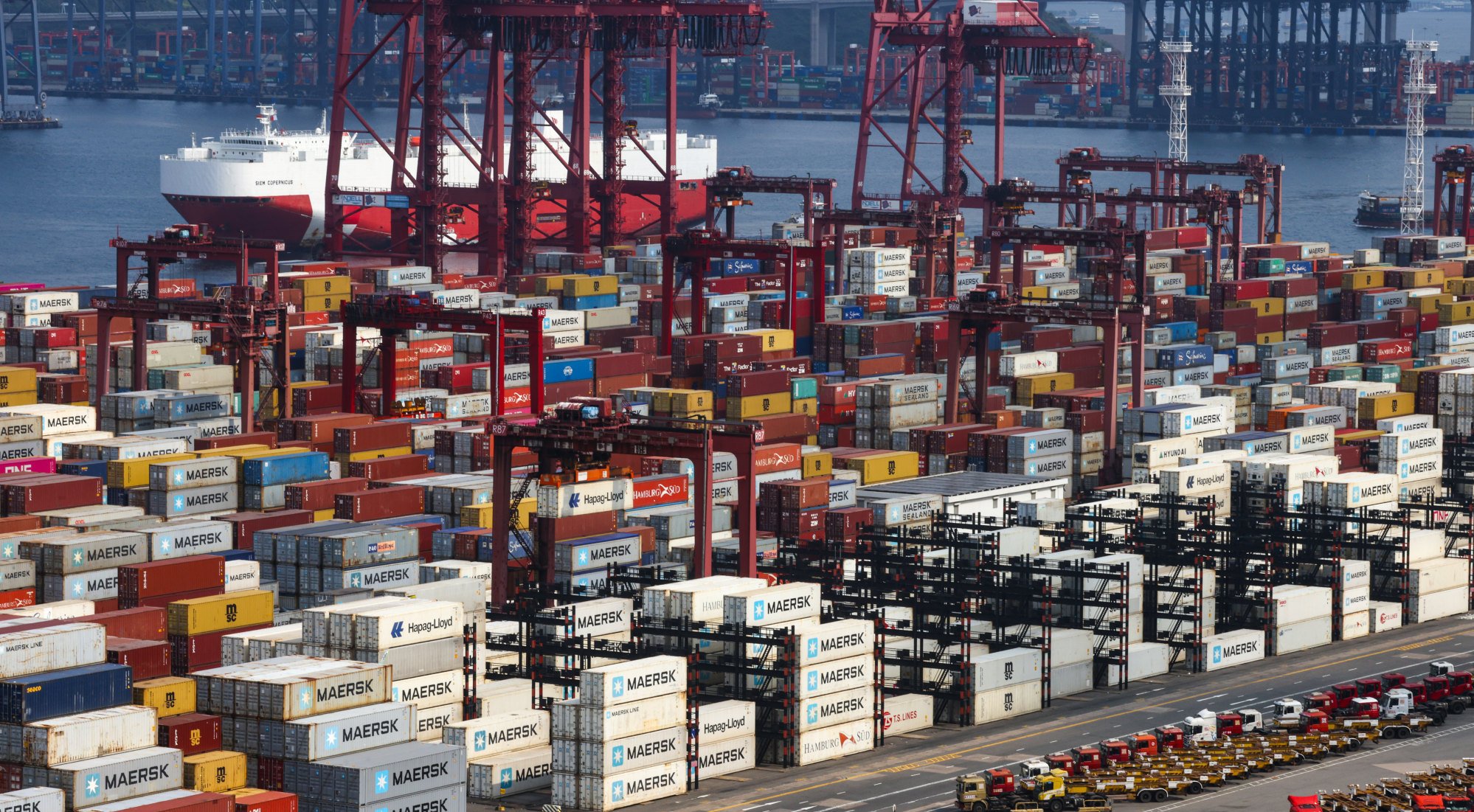
Hong Kong economy grows 2.7% in first quarter amid rise in exports of services
- Spokesman says service exports will be supported by further revival of inbound tourism and government efforts to promote mega-event economy
- ‘Geopolitical tensions and tight financial conditions will continue to affect exports of goods, but some slight improvement may be seen,’ he adds
Hong Kong’s economy grew 2.7 per cent year on year in the first quarter of 2024, at the lower end of the government’s forecast, as exports of services continued to increase notably due to a rise in visitor arrivals.
Advance estimates released by the Census and Statistics Department on Thursday showed gross domestic product (GDP) growth in the first quarter was in the same range as the government’s full-year forecast of between 2.5 per cent and 3.5 per cent.
Hong Kong’s economy rebounded to less-than-expected 3.2 per cent growth last year from a contraction in 2022, as weak global demand cast a shadow on the city’s post-pandemic recovery.

A government spokesman said exports of services – sales of services to the rest of the world – would be supported by a further revival of inbound tourism alongside the ongoing recovery of handling capacity and the government efforts to promote a mega-event economy.
“Geopolitical tensions and tight financial conditions will continue to affect exports of goods, but some slight improvement may be seen as external demand has held up relatively well so far,” he said.
“Domestically, rising household income and the government’s initiatives to boost sentiment should help private consumption, but the changing consumption pattern of residents may pose challenges.”
Hong Kong economy grows less-than-expected 3.2% in 2023
The spokesman said ongoing economic growth should lend support to fixed asset investment but added that a longer period of tight financial conditions might have some dampening effects on economic confidence and activities.
Hong Kong welcomed more than 11 million visitors in the first quarter, more than double the number in the same period last year.
On a quarterly basis, the economy improved by 2.3 per cent in the first quarter from the previous one.
During the first quarter, private consumption further rose 1 per cent from the same period last year after a 3.5 per cent year-on-year jump in the fourth quarter of 2023. Government expenditure dropped 3 per cent year on year in the last three months of the year.
Exports of goods recorded growth as measured on a national account basis, following previous lacklustre performances. They jumped 6.7 per cent year on year in the first quarter while imports were up by 3.2 per cent.
Financial Secretary Paul Chan Mo-po earlier warned of a need to re-evaluate the pace of economic recovery in the city amid possible delays to US interest rate cuts, but added that there will not be any drastic adjustments to growth forecasts.
He said Hong Kong might face a higher interest rate environment for longer as the US Federal Reserve had earlier indicated any cuts might take longer than previously anticipated following a series of surprisingly high inflation readings.
Hong Kong economy set for fifth straight quarter of ‘moderate’ growth: Paul Chan
The unemployment rate remains at a low of 3 per cent and inflation stands at 2 per cent. Property prices had experienced a yearly decline of about 7 per cent, while the stock market had fallen by 14 per cent.
Junyu Tan, North Asia economist for Coface Greater China Services, a credit insurance firm, said he expected a more balanced recovery in the second half. Interest rates were expected to fall and trade flows improve, which together would offset softening private consumption, he said.
“But given the broader structural challenges, we expect Hong Kong’s economy to grow by 2-3 per cent in 2024, lower than the government’s forecast of 2.5-3.5 per cent,” he said.
Tan said the structural challenges included a “new normal” in the form of the one-hour living circle with the Greater Bay Area, Beijing’s plan to link Hong Kong and Macau with nine Guangdong province cities to form an economic powerhouse.
“A new normal appears to be taking shape … [and] has led to more local residents’ departure for weekend leisure, while the mainland’s efforts to expand its visa-free ‘circle of friends’ may divert the inflow of mainland tourists,” he said.
“This will make a full tourism recovery to pre-pandemic levels less likely in the short term, requiring greater government efforts to revive local businesses and increase tourism appeal.”
Gary Ng, senior economist at Natixis Corporate and Investment Bank, predicted full-year growth of 3 per cent as Hong Kong continued to face challenges from lacklustre consumption and investment caused by a stagnant property market and residents heading north to spend.
“Despite the improvement in exports, we anticipate consumption and investment expenditure will grow at a rather slow pace in the second and third quarters. Overall, there are chances the economy will grow by 3 per cent for the whole year,” he said.
Thomas Shik Chun-sing, chief economist at Hang Seng Bank, said they maintained their forecast at 2.8 per cent growth for this year as asset price market sentiment had improved with a robust labour market.
“These will help improve consumer confidence while the government’s supporting measures will help sustain the continued recovery of the tourism industry,” he said.

